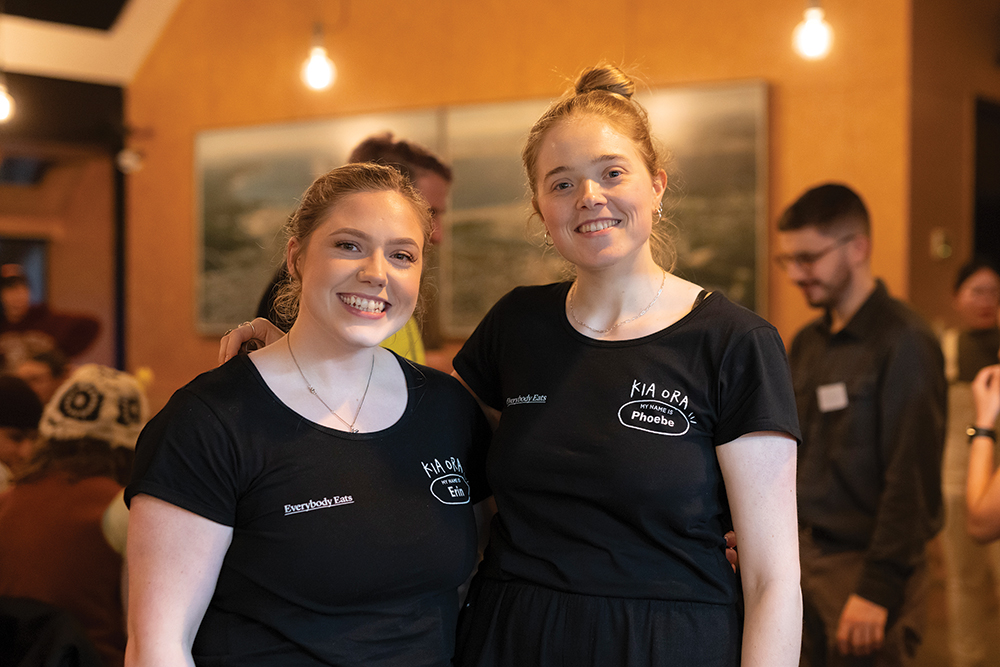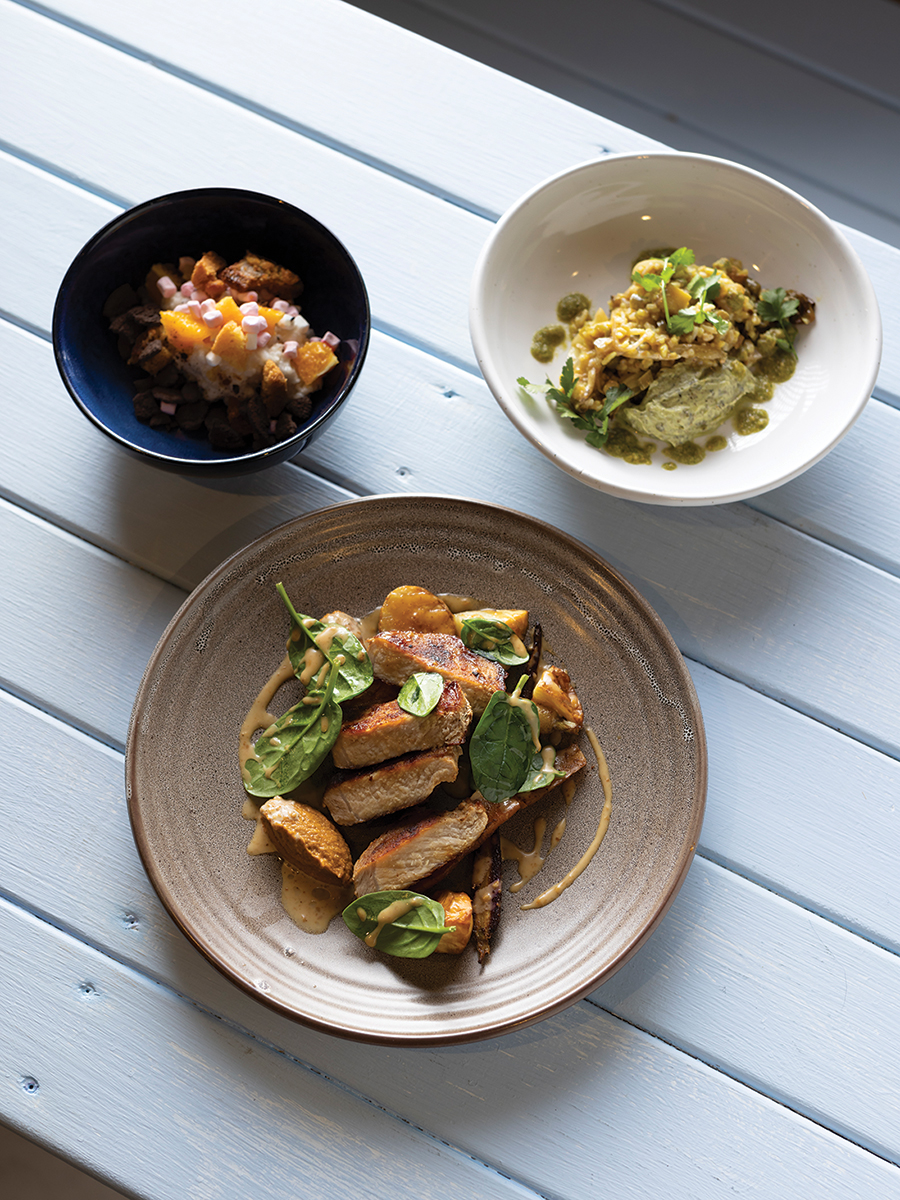It’s estimated that one-third of food produced is lost or binned around the world before it reaches our dining tables, the equivalent of 1.3 billion tonnes per year. Studies have also shown that one in six New Zealanders don’t have enough to eat.
Kiwis chuck nearly 123,000 tonnes of food – wasting $563 per household – which is enough to feed 262,917 people or half the population of the Wellington region for 12 months. Studies have also shown that one in six New Zealanders don’t have enough to eat.
“There is a lot more awareness around food waste now, and how we can all play our part,” says Amy Tew, general manager of Everybody Eats, a pay-as-you-feel dining concept that serves chef-prepared meals that “feed bellies not bins”.
“People are more accepting of food that might not look perfect but is perfectly good to eat,” Amy continues. “There’s still more to do to encourage food industries to minimise waste and help get food to people who need it.”
Everybody Eats is doing just that by collecting surplus food from charities and businesses such as KiwiHarvest, Kaibosh, and New World, to be cooked up by volunteers around the country and served to those in need: “We also pass on produce to other charities in this space. For example, we only cook with raw ingredients, so if we get pre-made pastries, we’ll pass them onto the local food bank.”
Amy tells Verve that their “diverse volunteer community” jump on board through many different avenues, including those who have previously been for dinner. “We have people who hear about us through social media and feel passionate about helping the environment and supporting their community, or even just because they want to make new friends and do something fun and productive,” she adds. “We also have volunteer groups from different businesses and organisations. It’s great for team-bonding and serving your local community.”
Volunteers also power Good Bitches Baking, an initiative that supports “people having tough time” – including refuges, foodbanks, shelters, hospices, prisons, and mental health services – by donating time and baked goods.
“We don’t define ‘tough time’ because it’s not our job to tell anyone what they’re experiencing but we do our best to offer a moment of kindness,” says GBB general manager Katy Rowden. “There’s also no income or eligibility criteria for being a Good Bitch – in fact, if money is a barrier to participating, we have a Cup of Sugar fund to support GBs with the costs of ingredients and/or fuel.”
Katy reveals that when the GBB founders came up with the concept in 2014, wanting to “spread a little kindness”, they could never have dreamed that it would have evolved into what it is today: an organisation of nearly 3,200 volunteers spread across 30 chapters that support nearly 400 organisations from the tip to the toes of Aotearoa.
“Our volunteers range in age from kids to people in their 80s,” says Katy, “and we have people of all genders on the roster. We’re proud of our growth – in the past 12 months, we’ve baked 26,860 boxes of treats, blowing our target of 25,000 out of the water!”
“We don’t define ‘tough time’ because it’s not our job to tell anyone what they’re experiencing but we do our best to offer a moment of kindness.”


I ask Katy why baking was chosen as their method of spreading kindness.
“Because everyone deserves a treat, no matter who they are or their circumstances,” she says. “Many people want to contribute to the wellbeing of their community, but often don’t’ know how to or don’t have the time or the means. Many of them can bake, or do deliveries, allowing them to contribute meaningfully to their communities.”
“A key aim of our restaurants is to help build community connections,” says Amy. “By coming and chatting to someone else you’re making a difference. We also need diners who can pay-it-forward for those who can’t pay. To help overcome this we try to spread the word through our socials, supporters and volunteer community, so that everyone knows they are welcome to come and dine at Everybody Eats.”
Aside from getting a tasty treat, Katy says that recipients of their cakes “feel seen and nurtured”. “We definitely don’t claim to fix anyone’s problems,” she adds, “but think about the last time someone did something kind for you, with no strings attached. How did you feel? It’s a moment of respite.”
I ask how success is measured.
“I guess final success would be the end of any need for an organisation like ours because communities are so holistically healthy,” says Katy. “But for now, success is happy volunteers baking and delivering lots of treats, the amazing feedback we get from our recipient organisations about how the baking makes the people they support feel, and spreading into more corners of Aotearoa.”
“For us, success is having a full and vibrant restaurant,” says Amy. “It’s the amount of food we’ve saved from going to landfill, and the number of three-course meals served. It’s the number of people walking through the door without worrying about if they can afford to eat out or afford to eat at all that evening. It’s also about the interactions between people. Moments of connection between diners and volunteers, especially when those connections continue outside of the restaurant.
“It might be lots of little things that happen each day, but they all add up to make a difference.”






